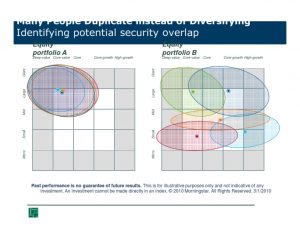
What People Get Wrong About Retirement Rollovers
Here’s what people get wrong when making rollover decisions.

Here’s what people get wrong when making rollover decisions.
Too many seniors still take the Social Security claiming decision too lightly – it’s a mistake that can cost them tens, if not hundreds, of thousands of dollars of retirement income during their lifetimes. And, often, the decision is made based on false bias or assumptions rather than a solid planning strategy.

The SECURE Act 2.0 may do a lot to help secure Uncle Sam, but I’m not so sure about the rest of us.

After passage of the SECURE Act of 2019, non-spouse IRA beneficiaries are now required to liquidate their inherited IRAs by the end of the 10th year. Often, that means they’ll be withdrawing taxable income from the inherited IRAs during their peak earning years – great gift for Uncle Sam, but not so good for the kids.

For some people, planning for retirement can feel like trying to eat an elephant; but, it doesn’t have to be that way. Before making big decisions, it’s always important to get the ducks lined-up first.

RMD age hikes may not be the blessing you think. The question just might be who is more secure? Retirees or future government spending?

Retirement decisions can be momentous. Which year you would have remembered would depend on if you retired back then… and which year!

Congress labeled it the SECURE Act, because it’s a better sell to the public. But, what Uncle Sam really wanted to do was make their spending programs more secure – hence, securing reelection.
Looking for retirement security?
Government spending has been out of control for decades and Congress needs to raise revenue. So, they passed The SECURE (Setting Every Community Up for Retirement Enhancement) Act in December 2019. It may secure the government’s future; but, one provision may make your heir’s retirement a little less secure.
Tax traps are waiting. Did you it’s possible to be smack in the middle of the 22% tax bracket, yet taking an additional $1,000 in income could make that additional money taxable at 40%? It can happen to some taxpayers. In fact, there are other pitfalls many aren’t aware of, as well.
While the Fed continues to target a 2.0% inflation rate, headwinds in the form of inflation pressures from worker shortages, tariffs, and foreign conflicts are coming at a time as America approaches a historic demographic milestone – a record number of individuals turning 65 this year.
Back in the 1990s, taxes and fiduciary standards weren’t talked about. The financial headlines were dominated by star fund managers and double-digit growth stories. Financial talk shows and glossy magazines alike obsessed over who was “beating the market.” The mantra was simple: accumulate assets. That was the measure of success.